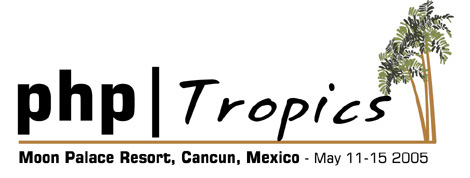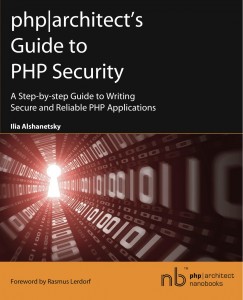|
Quicksearch
Calendar
|
Wednesday, March 23. 2005
FUDforum 2.6.12 Released Posted by Ilia Alshanetsky
in FUDforum, PHP at
14:30
Comment (1) Trackback (1) FUDforum 2.6.12 Released
This release is the culmination of the RC1-RC3 changes in addition to few small bug fixes added post RC3. These include updates to the Russian translation, better post login redirection logic and splitting of existing topics into new forums.
The install and upgrade scripts are available from: http://fudforum.org/download.php 2.6.12 also addresses a minor security issue inside the error logging code on certain installations running on Apache. Full details of the problem can be found here. Friday, March 18. 2005
FUDforum 2.6.12RC3 Released Posted by Ilia Alshanetsky
in FUDforum, PHP at
15:23
Comments (0) Trackbacks (5) FUDforum 2.6.12RC3 Released
Another small bug fix RC that hopefully brings us yet another step closer to the stable release.
Major Changes Include the following:
This release can be downloaded here. Monday, March 7. 2005
FUDforum 2.6.12RC1 Released Posted by Ilia Alshanetsky
in FUDforum, PHP at
15:41
Comments (0) Trackback (1) FUDforum 2.6.12RC1 Released
Here goes the first release candidate of the 2.6.12 release, this release includes a fair number of changes and improvements so much testing is needed to ensure everything is working correctly. Among the changes are massive updates and revisions to the Italian translation. Addition of support for non-ascii (htmlencoded) characters in login/alias names. Support for mass topic deletion/moving for administrators and moderators. Several performance improvements and various bug fixes.
The full scope of the changes can be found here. The new release is available for download at: http://fudforum.org/download.php Friday, February 18. 2005
Free SSL Certs for OSS Projects Posted by Ilia Alshanetsky
in PHP at
21:43
Comments (0) Trackbacks (0) Free SSL Certs for OSS Projects
GoDaddy has announced that they will be giving away 1 year Turbo SSL certificates to qualifying Open Source projects. To find if you are applicable visit their request form at:
https://www.godaddy.com/gdshop/ssl/ssl_opensource.asp Seems like a neat idea that should give all OSS developers an opportunity to test their web applications with genuine SSL certificates and ensure that their applications work properly over https. Wednesday, February 16. 2005
FUDforum 2.6.10 Released Posted by Ilia Alshanetsky
in FUDforum, PHP at
15:20
Comments (0) Trackbacks (2) FUDforum 2.6.10 Released
A new stable release of FUDforum, 2.6.10 has been released today and is now available download. This release primarily is a a bug fix release with a number of low/medium priority fixes. All existing users of the forum are encouraged to upgrade to this release whenever possible. Full details of the changes can be found in the RC1 - RC3 release announcements on the support forum.
Wednesday, January 26. 2005More Conference I am happy to announce that I will be speaking at the annual PHP Quebec Conference on March 31st and April 1st. I will be giving a talk on Web services and a workshop on the same topic. The conference includes talks by many great speakers on variety of topics and should be of interest to all PHP users. Thursday, January 6. 2005
2005 Conference Schedule Posted by Ilia Alshanetsky
in PHP, Talks at
18:14
Comments (0) Trackbacks (0) 2005 Conference Schedule
I've been fortunate to be invited to speak at two conference so far this year.
 The first of those two conferences, PHP West will be happening in about a week in Vancouver on January, 14th 2005. I will, be giving a talk on XML support in PHP 5. While the conference lasts only a single day it costs merely $40 to attend and given an impressive list of speakers Rasmus, John, Terry, etc... it is certainly worth attending.  The second conference, PHP|Tropics, is still a few month away will be happening at the all-inclusive (alcoholic drinks are included, WOOHOO!) Moon Palace Resort near Cancun, Mexico between May 11th and 15th, 2005. Which should give you plenty of time to convince your boss and/or spouse to let you attend. I will be giving a talk on making PHP run a whole lot faster as well as an introductory tutorial on PHP 5. Marco has been working hard at giving reason for people to stay away from the beach by inviting many other great speakers such as Wez, Derick, Marcus and many others. So aside from getting a nice suntan you'll definitely have a chance to learn about some of the neat things PHP can do. For even more reasons to attend visit the conference's website. Thursday, December 23. 2004
Apache 1 vs Apache 2 Performance Posted by Ilia Alshanetsky
in PHP at
15:18
Comments (8) Trackbacks (2) Apache 1 vs Apache 2 Performance
In response to the on going flame war pertaining to the stability and usability of Apache 2 in comparison to Apache 1 I've decided to conduct a series of benchmarks to try to determine exactly how the two Apaches compare. The purpose of the test was to determine which server is faster at serving static HTML pages, who's real-time compression implementation is better and of course which is more suited for running PHP applications. The full details of the test are available below, but here is a quick summary of the results.
1) Apache 2 is about 4% faster then Apache 1 at serving static pages. 2) Apache 2's mod_deflate is over 60 percent faster then Apache 1's mod_gzip at real time compression of static HTML pages. 3) Serving PHP via Apache 2 is 27 percent slower then via Apache 1 DSO and 31 percent slower then Apache 1 static. Continue reading "Apache 1 vs Apache 2 Performance" Monday, December 20. 2004phpBB & unserialize bug
As most of you hopefully know, a few days ago PHP 4.3.10 and 5.0.3 were released in response to several vulnerabilities that were discovered. Two of those involved bugs in unserialize function that is used to re-create PHP variables based on an encoded string normally generated by serialize() function. This functionality allows storage & retrieval of PHP variables from outside PHP.
While these two problems are quite serious, they can normally only be exploited locally, meaning that you'd need an account with access to PHP on the server. However, several applications such as phpBB store serialized data inside cookies meaning that anyone accessing those applications will be able to supply their own serialized string. By tinkering with this string it is possible to make an exploit capable of doing things like theft of passwords. In response to this development phpBB developers decided to put the following statement out "This is not a phpBB exploit or problem, it's a PHP issue and thus can affect any PHP script which uses the noted functions". First of all this is not a correct analysis of the situation, the only applications vulnerable are the ones that expose serialized data to the user allowing them to modify it, like phpBB does. Even if the bug in serialized code did not exist, there are still issues with exposing serialized data to the user without validation. There is nothing to prevent someone from generating a very complex data structure that would take long time to parse and use it as a means of launching a resource depletion attack. It also means that by modifying the serialized string it is possible to inject all manner of data into the script which may lead to exploits due to uninitialized variables, etc... Ultimately it comes down to blindly trusting the user with your data and expecting not to get penalized for it. While unserialize is certainly a bug in PHP, the fact it is remotely exploitable is the fault of script writers who do not take the time to properly validate user input. Tuesday, December 14. 2004
FUDforum 2.6.9 Released Posted by Ilia Alshanetsky
in FUDforum, PHP at
21:39
Comments (0) Trackbacks (0) FUDforum 2.6.9 Released
After what seems like months of development a new stable release of FUDforum, 2.6.9 is finally out. This release fixes a fair number of bugs as well as introducing a number of functionality changes. These include series of speed imporvenments for many parts of the forum as well as some optimizations aimed at MySQL 4.1 users specifically. As of 2.6.9 all installation are now capable of generating PDFs based on forum messages thanks to the customized FPFD library bundled with FUDforum. The layout of the PDFs was also improved. All FUDforum users are encouraged to upgrade to this release.
The upgrade and installation scripts can be found here. Tuesday, December 7. 2004PHP/Apache Static vs DSO
Many PHP developers, myself included often mention that using PHP that is compiled statically (Apache module) is much (18-30%) faster then the shared module that is normally compiled. This is a rather unusual claim that is often met with much skepticism for a good reason, presense of pic code resulting from a shared build should not cause this, however benchmarks speaks for themselves.
Unfortunately finding hard data is rather hard since most of us are rather lazy to spend 30 mins performing the needed tests. Fortunately, George Schlossnagle published the benchmarks he conducted on the matter that conclusively demonstrate that the the static build is much faster. The raw benchmark data can be found here Continue reading "PHP/Apache Static vs DSO" Monday, November 22. 2004
Timezone issues with PHP/mod_perl/Apache Posted by Ilia Alshanetsky
in PHP at
21:57
Comments (0) Trackbacks (0) Timezone issues with PHP/mod_perl/Apache
This afternoon an interesting problem came to my attention. This problem is the result of PHP and mod_perl being used together on Apache server. The full details of the problem can be found here.
The quick summary is that if PHP code uses putenv() function it will conflict with mod_perl and cause frequent crashes. The suggested solution is to use the Apache's apache_setenv() function. However, as I found out this does not always work. Continue reading "Timezone issues with PHP/mod_perl/Apache" Thursday, July 1. 2004
PHP's safe_mode or how not to ... Posted by Ilia Alshanetsky
in PHP at
18:24
Comments (9) Trackbacks (0) PHP's safe_mode or how not to implement security
A few years ago PHP developers decided to address a problem not their's to solve by implementing a configuration directive called safe_mode. To those unfamiliar with this wondrous invention, this setting is primarily intended to provide file access limits to prevent users from accessing files that do no belong to them. This supposedly should make it impossible to access files of other people in a shared server environment, a common operating environment for PHP where PHP runs as an Apache module and as such has read access to all files accessible by the webserver regardless of the owner. When enabled, safe_mode will perform a uid/gid (user id and group id) check on the file/directory to be accessed and compare it to the uid/gid of the script that is trying to access the file. If the two match then the file operation will proceed as normal and in all other cases it will fail. In theory this is a fairly simple hack to a problem that is not otherwise easily addressed without significant performance penalties such as running PHP in CGI mode, whereby the scripts are executed under the user's own user/group id. However, as with virtually all hacks there tend to be unforeseen problems that further prove that temporary solutions only escalate problems. So let's examine the safe_mode problems and hopefuly demonstrate why it should be avoided.
Continue reading "PHP's safe_mode or how not to implement security"
Monday, May 10. 2004PHP Optimization Tricks
There are a number of tricks that you can use to squeeze the last bit of performance from your scripts. These tricks won't make your applications much faster, but can give you that little edge in performance you may be looking for. More importantly it may give you insight into how PHP internals works allowing you to write code that can be executed in more optimal fashion by the Zend Engine. Please keep in mind that these are not the 1st optimization you should perform. There are some far easier and more performance advantageous tricks, however once those are exhausted and you don't feel like turning to C, these maybe tricks you would want to consider. So, without further ado...
Continue reading "PHP Optimization Tricks" Wednesday, April 14. 2004Top 10 ways to crash PHP
Ever wonder what it takes to crash PHP, well here is a quick guide
There are a number of other crashes in PHP, some were fixed and some may still be present. However those tend to be inside obscure extensions that most people do not have enabled and as such are very unlikely. Other crashes while may still exist are in the process of being resolved, unlike the ones listed above that are likely to be around for quite a while. |
Categories


|
||||||||||||||||||||||||||||||||||||||||||





